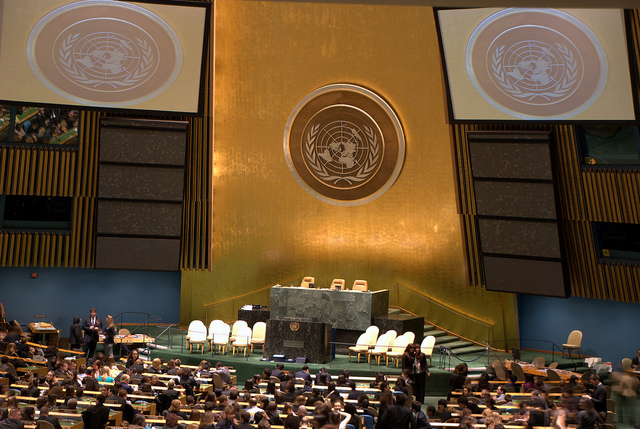Posted by Guo Cai – April 21, 2014 @ 10:16.
On March 31, 2014, the International Court of Justice (ICJ) handed down its decision in the case of Whaling in the Atlantic (Australia v. Japan: New Zealand Intervening). Australia initiated the proceedings against Japan, arguing that Japan’s ongoing large-scale whaling program under JARPA II violates the International Convention for the Regulation of Whaling (ICRW). Article VIII, paragraph 1 of the ICRW permits Party States to issue special permits authorizing their nationals to kill, capture and treat whales only for the purpose of scientific research. The crux of Australia’s case was that JARPA II, the second phase of the Japanese Whale Research Program under Special Permit in the Antarctic, is not for the purpose of scientific research, and so constitutes a substantive violation of Japan’s obligations under the Schedule to the ICRW. The Schedule defines Party States’ substantive duties, for example, sets out catch limits for commercial and aboriginal subsistence whaling.
The ICJ panel was composed of 16 judges, including Professor Hilary Charlesworth, an SJD graudate from Harvard Law School, who was appointed by Australia as a judge ad hoc because the Court currently has no Australian members. The Court ruled in favor of Australia on most claims and found, by twelve votes to four, that: (1) Japan was not conducting JARPA II for a scientific purpose; and (2) Japan had violated its obligations under the Schedule to the ICRW. By the same votes, the Court granted Australia’s request that Japan be ordered to revoke any extant permit granted in relation to JARPA II, and refrain from granting further permits under that program. The four dissenting judges in these findings are Judges Owada (Japan), Abraham (France), Bennouna (Morocco), and Yusuf (Somalia).
While recognizing states’ discretion in issuing special permits, the Court held that the “purposes of scientific research” standard cannot depend on the state’s subjective perception alone. Adopting an “objective standard of review,” the Court found that although JARPA II can broadly be characterized as “scientific research,” JARPA II’s design and implementation are not reasonable in relation to achieving its stated objectives. In reaching this conclusion, the Court considered, inter alia, that: (1) Japan did not study the feasibility of non-lethal methods or methods combining smaller lethal takes with larger non-lethal sampling; (2) JARPA II overlaps considerably with JAPRA I; (3) Japan launched JARPA II without waiting for the final review of JARPA I by the Scientific Committee of International Whaling Commission; (4) the overall sample size under JARPA II was determined with scant analysis and justification ; (5) JARPA II’s time frame was open-ended, scientific output based on the sampled whales was limited, and the number of minke whales killed so far under JARPA II was as high as 3,600, in the absence of cooperation with other international research programs.
Peter Garrett, the Former Australian Minister of Environment, who oversaw the initiation of this case, said he “was absolutely over the moon” about the ICJ judgment. However, it does not mean the end of whaling. Norway hunts around 500 minke whales in the northeast Atlantic annually, while Iceland hunts roughly 50. In the North Pacific, Japan hunts around 100 minke whales each year outside of the JARPA II program covered by the ICJ’s ruling. These figures, though smaller than the number of whales Japan was hunting under JARPA II, are still significant.







